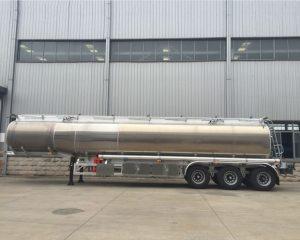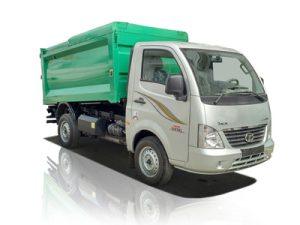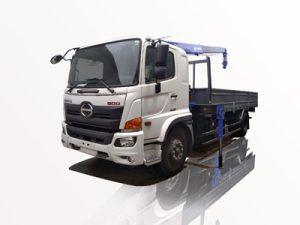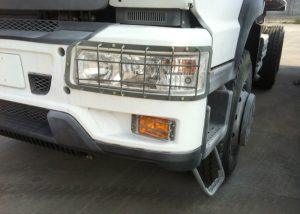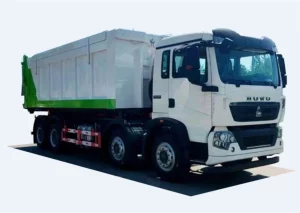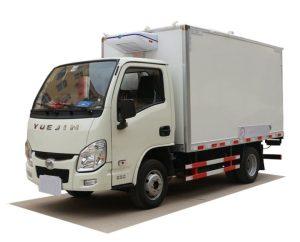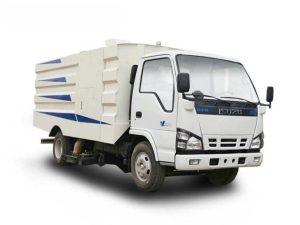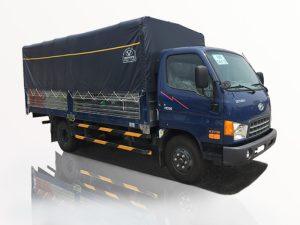Monday to Saturday - 8:00 -17:30
Everything You Need to Know About Bucket Lift Vans
Bucket lift vans are essential vehicles for various industries, providing aerial access to hard-to-reach areas for maintenance, construction, and other tasks. Understanding how these vans work and the advantages they offer can significantly enhance productivity and safety. This guide covers every aspect of bucket lift vans, from their features and applications to best practices for use and maintenance.
What is a Bucket Lift Van?
A bucket lift van, also known as a cherry picker or elevating work platform, is a specialized vehicle designed to raise workers and equipment to elevated heights. These vehicles are equipped with a hydraulic lifting system and a bucket that can hold one or more people. They are commonly used in construction, forestry, maintenance, and emergency services.
How Bucket Lift Vans Work
The Hydraulic System
The core component of a bucket lift van is its hydraulic system. This system converts fluid pressure into mechanical force to lift the bucket to desired heights. Here’s how it works:
- Fluid Reservoir: Holds hydraulic fluid used in the lifting process.
- Hydraulic Pump: Pressurizes the fluid, enabling the lift.
- Cylinders: Extend and retract, raising or lowering the bucket.
Control Mechanisms
Bucket lift vans typically have controls located either on the bucket or at the base of the vehicle. Operators can maneuver the lift’s position, height, and angle to ensure efficient working conditions.
Types of Bucket Lift Vans
Articulating Boom Lifts
These lifts have joints that allow for flexible movements, making them ideal for navigating around obstacles while maintaining stability.
Telescopic Boom Lifts
This type features straight arms that extend vertically, providing maximum height and reach without obstacles. They are perfect for construction sites where heavy lifting is required.
Van-Mounted Bucket Lifts
These are mounted directly onto a van chassis, making them compact and versatile for urban environments. They are particularly useful for utility and maintenance work.
Applications of Bucket Lift Vans
Construction Industry
Bucket lift vans are widely used for tasks like installing roofing, electrical work, and general maintenance at height.
Maintenance and Repairs
They are ideal for maintaining streetlights, power lines, and tree trimming, providing safe access to elevated areas.
Telecommunications
Bucket lifts enable technicians to install and repair antennae and communication equipment on towers safely.
Safety Practices When Using Bucket Lift Vans
Training and Certification
Operators should receive training on safe operation techniques and the specific equipment being used. Certification ensures compliance with regulations and enhances workplace safety.
Pre-Operational Checklist
Before using a bucket lift van, operators should conduct a checklist that includes:
- Inspecting hydraulic systems for leaks
- Ensuring buckets are secure
- Checking for sufficient fluid levels
- Testing all controls for functionality
- Reviewing the stability of the vehicle
Personal Protective Equipment (PPE)
Operators should wear appropriate PPE, including safety harnesses, hard hats, and non-slip footwear, to mitigate the risk of accidents.
Maintenance of Bucket Lift Vans
Regular Inspections
Conducting regular inspections is vital for ensuring safety and efficiency. Key aspects to inspect include:
- Hydraulic fluid levels
- Brake functionality
- Electrical systems
- Tire condition
Routine Service History
Keep a log of all maintenance work performed, including dates and specifics to track performance over time and schedule future upkeep.
Cost Considerations for Bucket Lift Vans
Purchase vs. Rent
Deciding whether to buy or rent a bucket lift van depends on frequency of use. Renting may be more economical for occasional projects, while purchasing is better for frequent use.
Operational Costs
Consider costs such as fuel, insurance, maintenance, and training. Budgeting for these expenses ensures you avoid unexpected costs down the line.
Choosing the Right Bucket Lift Van
Load Capacity
Understand the load capacity required for your tasks to ensure safe operation without overloading the lift.
Height and Reach Requirements
Evaluate the necessary height and horizontal reach to determine the best model for your specific needs.
Budget and Costs
Compare prices among multiple suppliers to find a vehicle that fits your budget without sacrificing quality.
Examples of Industries Utilizing Bucket Lift Vans
Utilities and Telecommunications
Companies that maintain electrical lines or communication towers rely on bucket lift vans for safe access.
Construction and Renovation
Builders use bucket lifts for reaching high areas safely, especially during roofing or repairs.
Tree Care Services
Arborists use these vans for tree trimming and removal, enhancing safety and efficiency when working at high altitudes.
FAQs about Bucket Lift Vans
What is the average height a bucket lift van can reach?
Most bucket lift vans can reach heights of 30 to 50 feet, depending on the model and type.
How often should bucket lift vans undergo maintenance?
Bucket lift vans should be inspected regularly, ideally once a month, with thorough maintenance performed at least once a year.
Can I operate a bucket lift van without certification?
No, operators typically need to be certified to ensure they have the necessary skills and knowledge to operate the equipment safely.
What safety features should I look for in a bucket lift van?
Look for features like emergency stop buttons, harness attachments, and stability systems to enhance operational safety.
How do I determine the right bucket lift van for my needs?
Consider factors like load capacity, height and reach requirements, and the frequency of use to select the proper van.
| Type of Bucket Lift | Max Height | Typical Load Capacity | Best Uses |
|---|---|---|---|
| Articulating Boom Lift | 30-60 ft | 300-500 lbs | Construction, tree trimming |
| Telescopic Boom Lift | 40-80 ft | 500-1,000 lbs | High-rise construction |
| Van-Mounted Lift | 25-40 ft | 300-500 lbs | Utility maintenance, urban work |


